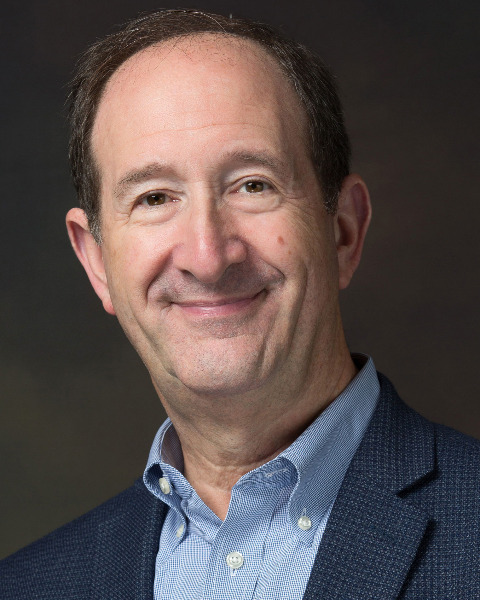Billing and Coding in PALTC and BEYOND
1.50 CME / 1.50 CMD Management / 1.50 MOC
This session will provide an overview of codes beyond the usual nursing home set and how they may be appropriate for your practice. Advance care planning, chronic care management, complex chronic care management, non-face-to-face prolonged services, behavioral health integration, and other codes that have been established since 2016 will be examined. The session will also provide examples of how and when to use these codes as the payment system moves from volume to value based. In addition, it will cover the latest changes proposed by the Centers for Medicare & Medicaid Services (CMS) for evaluation and management services.
Presenters
 Charles Crecelius, MD, PhD, FACP, CMD, is the Director, Post-Acute Care Services for the BJC Medical Group ACO, multi-facility medical director for Delmar Gardens Enterprises, and Associate Clinical Professor of Internal Medicine and Geriatrics at Washington University School of Medicine. He is a Past President of AMDA – The Society for PALTC Medicine, represents the Society in the American College of Physician’s Subspecialty Advisory Group on Socioeconomic Affairs and the AMA Relative Value Update Committee, and is on the Steering Committee of their Practice Management Section.
Charles Crecelius, MD, PhD, FACP, CMD, is the Director, Post-Acute Care Services for the BJC Medical Group ACO, multi-facility medical director for Delmar Gardens Enterprises, and Associate Clinical Professor of Internal Medicine and Geriatrics at Washington University School of Medicine. He is a Past President of AMDA – The Society for PALTC Medicine, represents the Society in the American College of Physician’s Subspecialty Advisory Group on Socioeconomic Affairs and the AMA Relative Value Update Committee, and is on the Steering Committee of their Practice Management Section.
 Robert Zorowitz, MD, MBA, CMD, is Regional Vice President, Health Affairs, for the Northeast at Humana. A graduate of Albany Medical College, he completed a residency in Internal Medicine at Long Island Jewish Medical Center and a fellowship in Geriatric Medicine at Mt. Sinai School of Medicine. He received his MBA from the Goizueta Business School of Emory University. He is board-certified in Internal Medicine, Geriatric Medicine, Hospice/Palliative Medicine and is a Certified Medical Director in Post-Acute and Long-Term Care. Over the years, his practice took him to the office, hospital and post-acute/long-term care settings. For the last 15 years, he has been the American Geriatrics Society Advisor to the American Medical Association's CPT Editorial Panel.
Robert Zorowitz, MD, MBA, CMD, is Regional Vice President, Health Affairs, for the Northeast at Humana. A graduate of Albany Medical College, he completed a residency in Internal Medicine at Long Island Jewish Medical Center and a fellowship in Geriatric Medicine at Mt. Sinai School of Medicine. He received his MBA from the Goizueta Business School of Emory University. He is board-certified in Internal Medicine, Geriatric Medicine, Hospice/Palliative Medicine and is a Certified Medical Director in Post-Acute and Long-Term Care. Over the years, his practice took him to the office, hospital and post-acute/long-term care settings. For the last 15 years, he has been the American Geriatrics Society Advisor to the American Medical Association's CPT Editorial Panel.
Learning Objectives
- Explain the improvement in payment for care management services by CMS.
- Describe the new codes that allow reporting of additional evaluation and management services.
- Discuss how these codes have the potential to improve patient care.
- Discuss CMS-proposed changes to evaluation and management service codes.
Credit Information
Activity Created 3/2022
Credits Available Until 3/2025
Credit Statements:
CME: AMDA – The Society for Post-Acute and Long-Term Care Medicine designates this enduring material for a maximum of 1.5 AMA PRA Category 1 Credit(s)TM. Physicians should only claim credit commensurate with the extent of their participation in the activity.
AMDA – The Society for Post-Acute and Long-Term Care Medicine for Post-Acute and Long-Term Care Medicine is accredited by the Accreditation Council for Continuing Medical Education (ACCME) to provide continuing medical education for physicians.
CMD: This self-study activity has been pre-approved by the American Board of Post-Acute and Long-Term Care Medicine (ABPLM) for a total of 1.5 management hours toward certification or recertification as a Certified Medical Director (CMD) in post-acute and long-term care medicine. The CMD program is administered by the ABPLM. Each physician should claim only those hours of credit actually spent on the activity.
ABIM Maintenance of Certification (MOC): Successful completion of this CME activity, which includes participation in the evaluation component, enables the participant to earn up to 1.5 Medical Knowledge MOC points and patient safety credit in the American Board of Internal Medicine’s (ABIM) Maintenance of Certification (MOC) program.
Participants will earn MOC points equivalent to the amount of CME credits claimed for the activity. It is the CME activity provider’s responsibility to submit participant completion information to ACCME for the purpose of granting ABIM MOC credit.
Visit the Continuing Education page for information on if and how you can claim credit/hours for AMDA’s education.
Disclosure Information:
The Society requires the disclosure of all speaker/faculty/planner’s relevant financial relationships; presence of off-label use of a device or medication; and discussion of any experimental, new or evolving topic prior to each accredited education activity.
If the learner perceives any bias toward a commercial product or service, advocation of unscientific approaches to diagnosis or therapy, or recommendation, treatment, or manners of practicing healthcare that are determined to have risks or dangers that outweigh the benefits or are known to be ineffective in the treatment of patients please report this to the Society’s staff.
All relevant financial relationships have been identified, mitigated, and resolved.
- The following AMDA Education Committee members have financial relationships to report: Diane Sanders-Cepeda, DO, CMD — UHC E&I Retiree Solutions: Full-Time Employee; all others have no relationships with ineligible companies.
- The speakers have no relevant financial relationships.
- AMDA staff have no relationships with ineligible companies.